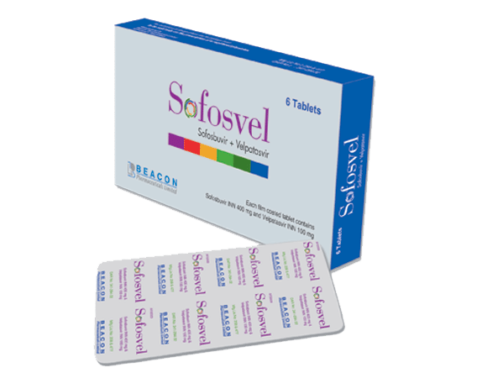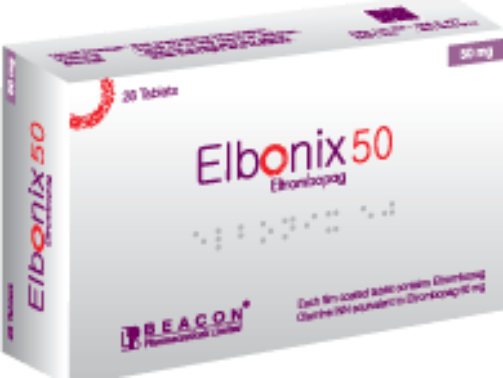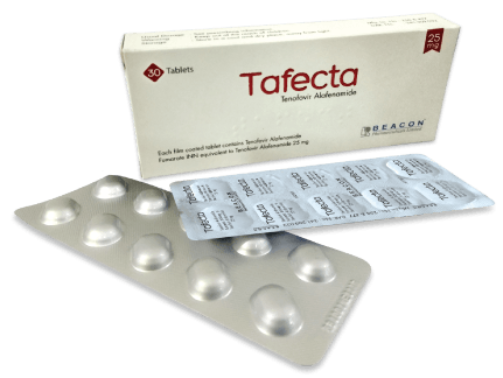Baricitinib 4 mg (Olumiant)
Baricitinib is prescribed for adults with moderate to severe active rheumatoid arthritis who haven’t responded well to, or cannot tolerate, one or more disease-modifying anti-rheumatic drugs. It can be used alone or together with Methotrexate.
- Upper respiratory infections
- Headache
- Nausea
- High blood pressure
- Increased liver enzymes
- Blood clots, especially deep vein thrombosis (DVT) and pulmonary embolism
The oral Janus kinase (JAK) inhibitor baricitinib, sold under the brand name Olumiant, is mainly used to treat moderate to severe rheumatoid arthritis (RA) in individuals who have not reacted well to methotrexate or other disease-modifying antirheumatic medications (DMARDs). JAK1 and JAK2 enzymes, which are implicated in the signaling pathways that cause inflammation, are specifically inhibited by it. Baricitinib helps lessen rheumatoid arthritis’s discomfort, inflammation, and damage by blocking these enzymes.
Mechanism of Action
Baricitinib 4 mg targets the Janus kinase-signal transducer and activator of transcription (JAK-STAT) pathway, which is crucial for regulating immune cell responses. Members of the JAK family of enzymes, including JAK1, JAK2, JAK3, and TYK2, are involved in the activation of growth factors and cytokines that are essential for immunological response and inflammation. By inhibiting JAK1 and JAK2, Baricitinib 4 mg reduces the signaling of pro-inflammatory cytokines including interleukins, which trigger the inflammatory process in RA.
Indications
Rheumatoid Arthritis: Adults with moderate to severe rheumatoid arthritis who have not responded well to methotrexate or other DMARDs may be prescribed baricitinib. Both alone and in conjunction with methotrexate, it can be utilized.
Atopic Dermatitis: When other systemic therapy are ineffective or inappropriate, baricitinib is also used to treat moderate to severe atopic dermatitis.
COVID-19 (Emergency Use Authorization): Baricitinib 4 mg has occasionally been approved for the treatment of COVID-19 in hospitalized adults and children who need mechanical ventilation or additional oxygen under emergency use conditions.
Dosage and Administration
Baricitinib 4 mg is typically recommended as a 4 mg tablet that should be taken orally once daily, with or without food. When modifying the dosage, the patient’s reaction and any potential side effects may be taken into account. Usually, a starting dose of 4 mg daily is advised; however, if there is a history of infection or liver or renal issues, the dosage may be reduced. For patients with renal impairment, dose adjustments are necessary.
A patient’s dosage may be raised to 8 mg daily if they don’t react well, but this must be done under a doctor’s supervision as there is a risk of more negative side effects.
Side Effects
Common side effects associated with baricitinib include:
Malignancies, including lymphoma, and serious infections, including TB, are examples of serious side effects. It is important to keep an eye out for any indications of infection, liver problems, or other hematological disorders.
Warnings and Precautions
Baricitinib lowers the immune system, increasing a patient’s vulnerability to infections. Before beginning treatment, screening for latent or active tuberculosis and other diseases is crucial.
Blood Clots: Patients with a history of clotting disorders are more at risk for blood clots, which can include pulmonary embolism and deep vein thrombosis.
Liver Problems: Throughout treatment, liver enzyme testing is advised. It might be important to stop if there is severe liver impairment.
Vaccination: Since live vaccines should normally be avoided during treatment, vaccinations should be current prior to beginning medication.
Drug Interactions
Baricitinib 4 mg may interact with other drugs, such as immunosuppressants or treatments that interfere with blood coagulation. Baricitinib may potentially interact with other antifungal and antiviral drugs, including rifampin and fluconazole, changing how effective it is.
Conclusion
Baricitinib 4 mg (Olumiant) is an effective treatment for inflammatory illnesses, including moderate to severe rheumatoid arthritis. For patients who have not responded to traditional DMARDs, its ability to target specific inflammatory enzymes offers a substantial therapeutic alternative. It must be used carefully and watched for side effects, especially infections and blood clots, just like any other medication. As a relatively new medication, its safe and efficient use requires ongoing observation and consultation with medical experts.
Order Now At Mdx Pharma bd….
To order from MDX Pharma BD, visit their website at https://mdxpharmabd.com, where you can browse products and place orders online. For inquiries or orders via email, contact emedicarepharma@gmail.com. Alternatively, call (+88) 01929123476. Their address is 29, Abdullahpur, Uttara, Dhaka-1230, Bangladesh.
Q. For baricitinib, what blood tests are performed?
You will undergo a comprehensive medical evaluation and blood testing, including a lipid profile that includes your triglyceride and cholesterol levels, prior to beginning baricitinib. You will have routine blood test monitoring throughout therapy to assess your lipids, liver function, and total blood count.
Q. For baricitinib, what level of creatinine clearance is required?
Additionally, because baricitinib is predominantly a medicine eliminated via the kidneys, it should be avoided in patients with a creatinine clearance of less than 30 ml/min and its dosage should be decreased in individuals with a creatinine clearance between 30 and 60 ml/min.
| Product Name | Baricinix |
|---|---|
| Generic Name | Baricitinibame |
| Formulation | Tablet |
| Available Pack Size | 30’s Pot |
| Available Strength | 4mg |

 Cart is empty
Cart is empty 



